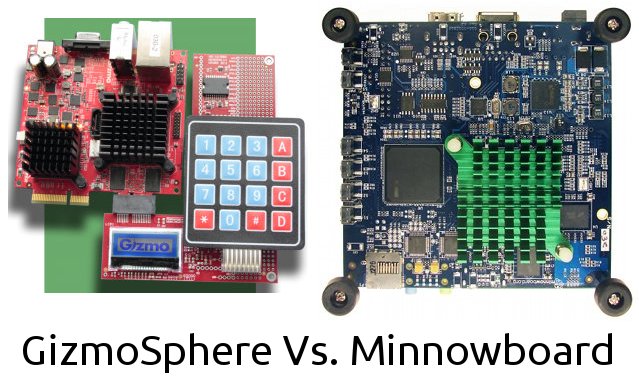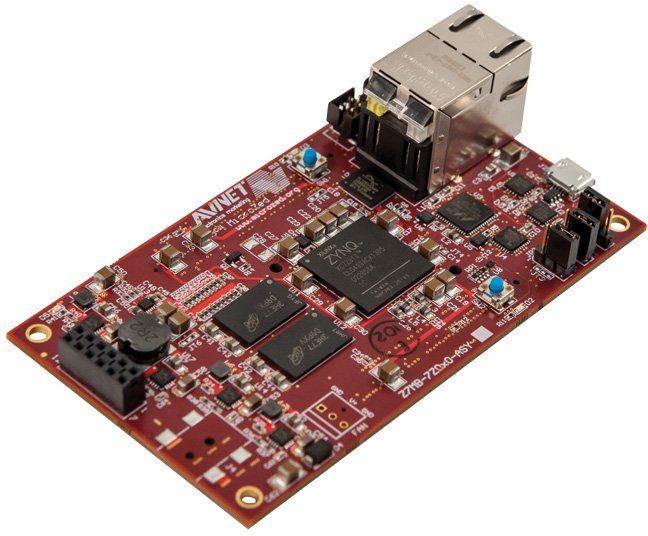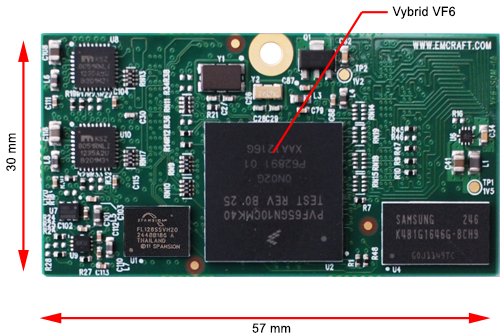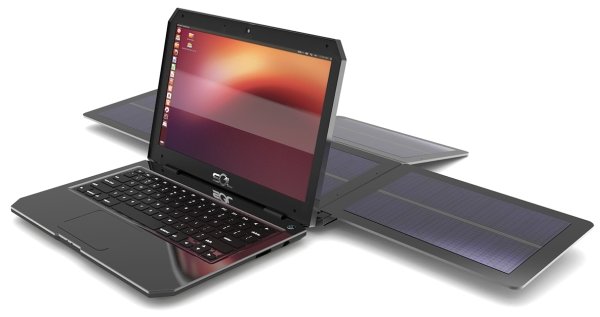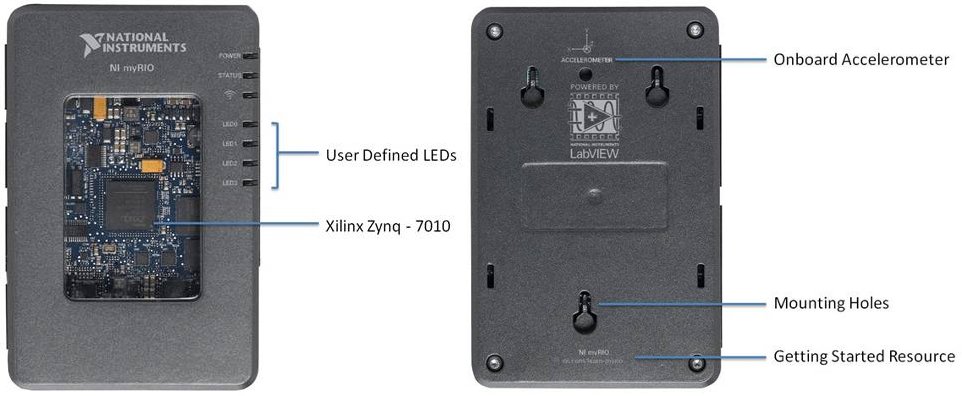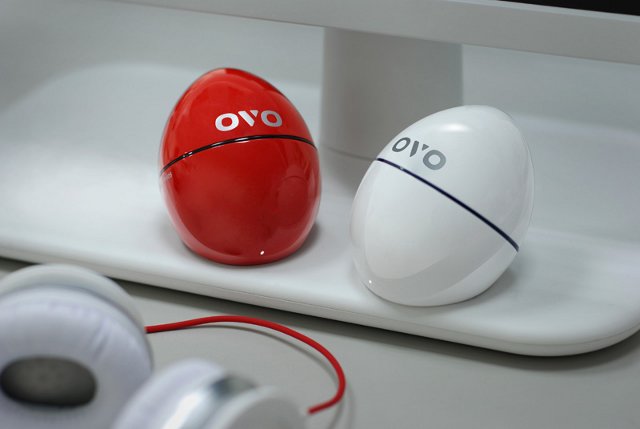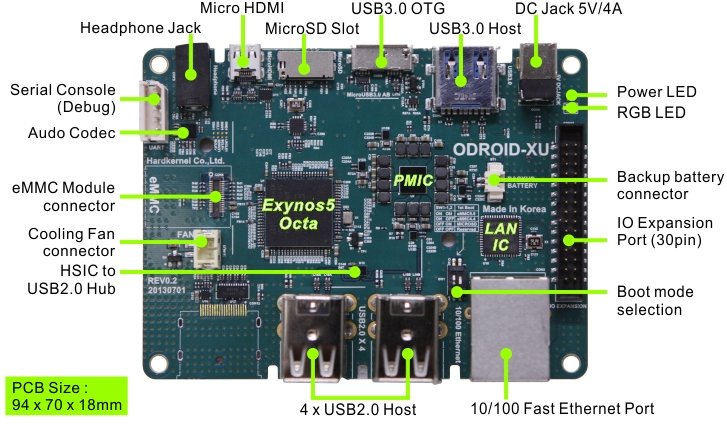The Gizmo Explorer Kit is an embedded kit based on a development board powered by AMD G-Series G-T40E dual core APU that’s available since the beginning of the year. The Minnowboard is another new x86 embedded board, but this time based on Intel Atom E640 processor. Both cost $199, so a side-by-side comparison might be useful,and GizmoSphere team released a comparison table for both board, and is offering free shipping for the week with “Sharkweek2013”. Let’s have a look. The company only provided the table in image format, so I’ll reproduce it “as is” below, and see if there may be some correction or addition afterwards, the table has been designed by one of the competitors. The parts in yellow are supposed to highlight advantages of the GizmoShpere against the Minnowboard, but they conveniently “forgot” to highlight advantages of the Minnowboard. [Update 13/08/2013 – Gizmo guys have updated their table […]
$199 MicroZed is a Low Cost Version of Zedboard ARM+FPGA Linux Development Board
ZedBoard is a low cost development board based on Xilinx Zynq-7020 SoC featuring two Cortex A9 cores and FPGA fabric, together with lots of ports and expansion I/Os, and running Linux. The problem is that “low cost” for this type of board still means $395 (or around $300 for academia), and you only get to this price because it’s been subsidized, and the normal price is actually $495… That’s why Avnet has just come with a new version of the evaluation kit called microZed that sells for $199 and targets applications such as general Zynq-7000 AP SoC evaluation and prototyping, embedded system-on-module (SOM) applications, embedded vision, test & measurement, motor control and software-defined radio. MicroZed technical specifications: SoC – Xilinx XC7Z010-1CLG400C (Zynq-7010) System Memory – 1 GB of DDR3 SDRAM Storage – 128 Mb of QSPI Flash + Micro SD card interface Connectivity 10/100/1000M Ethernet USB 2.0 USB-UART User I/O […]
Emcraft Systems Announces Freescale Vybrid VF6 SoM With Cortex A5 CPU and Cortex M4 MCU
Emcraft Systems has recently announced Vybrid VF6 SoM, a System-on-Module powered by Freescale Vybrid VF6 dual core Cortex A5/Cortex M4 SoC with 128MB DDR3, and 512MB Flash, as well as a starter kit composed of VF6 SoM and a carrier board. Emcraft VF6 System-on-Module specifications: SoC – Freescale Vybrid VF6 dual-core microprocessor with the ARM Cortex-A5 (up to 500 MHz) and Cortex-M4 cores (up to 167 MHz). Either MVF61NN151CMK50 (No Security), or MVF61NS151CMK50 (with Security). System Memory – 128 MBytes DDR3 SDRAM; Storage – Up to 512 MBytes NAND Flash, 32 MBytes dual QSPI Flash; Connectivity – Two 10/100 Ethernet interfaces with L2 switch; External interfaces using two 80-pin 0.4 mm-pitch connectors: Two USB 2.0 OTG interfaces Serial console interface at the UART CMOS levels; JTAG interface to the Vybrid VF6 TFT LCD interface Synchronous audio interface (SAI) supporting I2S, AC97 and CODEC/DSP interfaces Multiple serial digital (UART, SPI, I2C, […]
WeWi SOL Ubuntu Laptop is Powered by an Intel Atom Processor and Solar Energy
WeWi Telecommunications has designed a solaptop (Solar-powered laptop) with 4 foldable solar panels in order to recharge the battery. WeWi SOL is powered by Intel Atom D2500, with 4GB RAM, features a 13.3″ display, and runs Ubuntu. It will be sold for only $300 to $400. WeWi SOL specifications: CPU – Intel Atom D2500 @ 1.86 GHz Dual Core, Intel 945GSE + ICH7M GPU – Built-In Intel GMA3600 Graphics, 1080p HD Video System Memory – 2 to 4GB DDRIII SDRAM (Kingston) Storage – 2.5” SATA HDD 320GB (Seagate) + Card reader (SD/MS/MMC) Display – 13.3″ LCD, WXGA, 1366 x 768 Video Output – HDMI Audio – Realtek ALC661 HD Audio, built-in stereo speakers, internal mic + 3.5mm headphone jack Connectivity: 10/100M Ethernet 3G/4G World/multimode LTE Modem GPS (gpsOne Gen8A) WiFi – MIMO 802.11b/gn (2.4/5GHz) Bluetooth – Integrated Digital Core BT4.0 USB – 3x USB 2.0 Camera – 3MP Battery Operating Time […]
LinuxCon North America 2013 Schedule
LinuxCon (North America) 2013 will take place on September 16 – 18, 2013 in New Orleans, LA. The event will be co-located with several other conferences: the Linux Plumbers Conference, the Xen Project User Summit, the OpenDaylight Mini-Summit, the Gluster Workshop 2013, the UEFI Plugfest, the Linux Wireless Summit, the Linux Security Summit, and CloudOpen 2013. LinuxCon consists of 3 days of keynotes, and legal, operations, and developers related sessions as well as tutorials and workshops. There will be around 150 sessions and keynotes during those 3 days. I’ve gone through developer sessions and selected one for each time period. Monday, September 16 10:35 – 11:25 – UEFI and Linux by Kirk Bresniker, HP UEFI has become ubiquitous on the PC client systems and is coming up on servers and ARM-based systems, it is becoming the converged firmware infrastructure. UEFI Secure Boot feature has attracted a lot of attention from […]
NI myRIO is an Education Platform Powered by Xilinx Zynq-Z7010
National Instruments has been working on a device called NI myRIO, an hardware & software platform that aims at giving engineering students the ability to design real systems quickly for automation, robotics, data logging or embedded systems. The hardware is based on Xilinx Zynq-7010 with a dual-core ARM Cortex-A9 processor and an FPGA with 28,000 programmable logic cells, and features 10 analog inputs, 6 analog outputs, audio I/O channels, and up to 40 lines of digital input/output (DIO). NI myRIO Hardware Specifications: SoC – Xilinx Zynq-7010 with a dual core Cortex A9 processor and FPGA with 28,000 cells System Memory – Unknown Storage – Unknown Expansion Ports: myRIO exPansion Ports (MXP) – Two identical ports (MXP A and MXP B) with 4 analog inputs, 6 digital inputs/outputs, 2 analog outputs, 1 quad encoder, 3 PWMs, 1 UART, 1 I2C and 1 SPI by default. Ports configuration is customizable with Labview […]
$49 OVO Egg-Shaped Media Player Helps You Collect and Organize Online Videos With your Smartphone
If you’re often watching online videos on your smartphone, and when back home, you’d rather continue watching those on your television, OVO may be for you. The device is a tiny media player shaped like an egg, with a multimedia processor, a minimum amount of RAM and flash, and Wi-Fi. The full specifications haven’t been provided, but here’s what we know about the hardware: SoC- Full HD Media Processor System Memory – 2Gbit DDR3 (256 MB) Storage – 2GBit NAND Flash (256 MB) Connectivity – 2×2 WiFi 802.11b/g/n single-band Video Output – HDMI 1.4 Dimensions – 61.85 mm (h), 63.32 mm (w), 72.78 mm (d) Weight – 77 grams There’s no word about the OS, but it’s probably running some sort of Embedded Linux distribution. Another interesting point about the hardware is that the Wi-Fi module is not placed horizontally, but inclined, and according to the company this improves Wi-Fi […]
$149 Hardkernel ODROID-XU Octa Core big LITTLE Development Board
Just a few days after noticing code for ODROID-XU in hardkernel repository, the company has now launched ODROID-XU development board powered by Exynos 5410 octa core processor with 2GB RAM, USB 3.0, and more for just $149 (as long as you order in August, $169 after that). Here are ODROID-XU hardware specifications: SoC – Samsung Exynos5 Octa Cortex-A15 and Cortex-A7 big.LITTLE processor with PowerVR SGX544MP3 GPU System Memory – 2GB LPDDR3 RAM Storage – micro SD slot, eMMC 4.5 connector Video Output – micro HDMI + MPI LCD interface and Touch screen I2C ports (IPEX-40PIN) Audio – micro HDMI, headphone jack, MAX98090 Audio Codec Connectivity – 10/100M Ethernet via USB 2.0 (LAN9730) USB – 1x USB 3.0 Host, 1x USB 3.0 OTG, and 4x USB 2.0 Host Expansion Header – 30 pins (GPIO/IRQ/SPI/ADC) Misc – PWM connector for Cooler, Power Supply – 5V/4A (Plug specification is inner diameter 2.1mm and […]


